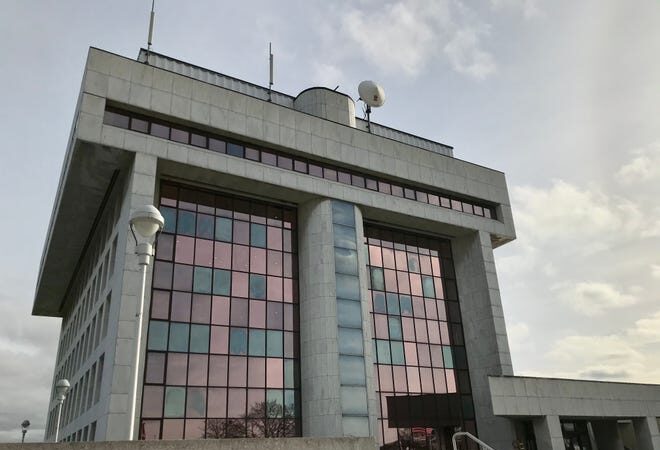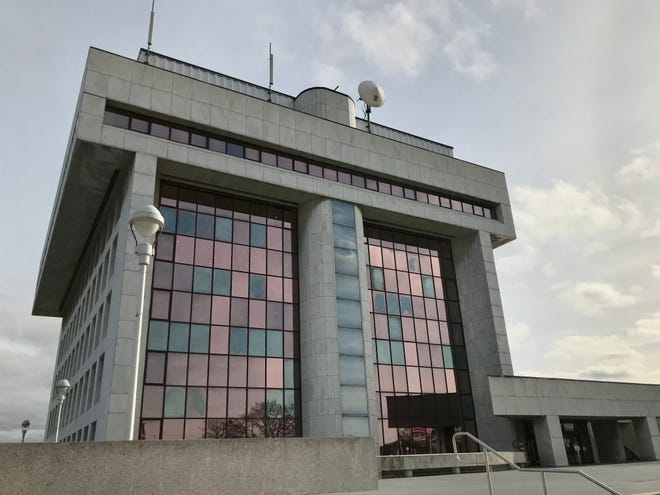

Identifying a permanent men’s homeless shelter in St. Clair County may have just gotten easier with extra federal housing dollars for the city of Port Huron.
City Council members signed off this week on a plan to use $937,946 in additional American Rescue Plan Act dollars with $400,000 set aside for the acquisition and development of non-congregate shelters.
Outside the millions already allocated to the city, these ARP funds are through the U.S. Department of Housing and Urban Development’s HOME federal block grant program.
“These dollars are targeted toward homeless and formerly homeless populations,” Jazmyn Thomas, community development program administrator for the city, said to officials last Monday. “… We are pretty set on who we can serve.”
A committee of local nonprofit organizers has been meeting for nearly a year to identify new homeless shelter options since Blue Water Area Rescue Mission closed its 24th Street shelter — the only men’s facility in the county —in 2022.
At the end of last year, Port Huron council officials agreed to put $200,000 from the city’s original ARP allocation toward financing the operation of a temporary warming shelter for men. Any remaining funds would go toward finding a long-term facility.
The temporary facility opened up this winter at All Nations Church of God in Christ, but it’s only slated to run through April.
Local organizers still ‘weighing all our options’ for final shelter fix
So far, organizers haven’t announced any plans for how men at risk of homelessness may be helped through the spring and summer months. Nor have they identified a permanent site, though Thomas, who serves on the shelter committee, told council they’re “really hoping to have something up and running for winter” later this year.
Josh Chapman, president and CEO of the local YMCA, which is staffing the temporary shelter, said something similar this week.
On Wednesday, he said organizers are still “weighing all of our options” and “looking diligently” for a permanent location but haven’t identified a building or property that would work. He confirmed the use of All Nations, which is only open to men overnight as a shelter, will be done for the season at the end of next month.
Thomas said the shelter piece of the city’s HOME ARP funds could be “available to make rehab repairs” to or purchase a new shelter building.
She also said they’re utilizing a realtor to help identify sites for a permanent location.
“I think the funding is an issue as far as continuing that on as a permanent warming center,” Thomas said. “And we do want to have a permanent location where people can get supportive services, it can be open 24-seven and be open year-round.”
The rest of the shelter committee includes representatives from Blue Water Community Action, Operation Transformation, the United Way of St. Clair County, and Community Mental Health of St. Clair County, among others.
Now, Chapman said they’re looking to “leverage all our services, so we can really help these guys and potentially families solve their issues.”
City won’t oversee use of program funds, coordinator says
In addition to the $400,000, the HOME ARP dollars include just shy of $200,000 for both tenant-based rental assistance and other support services.
Thomas said support could include things like job training, child care, or housing counseling for “vulnerable populations” that may face homelessness. Meanwhile, rental assistance entails short-term help with rent and security or utility deposits.
According to the HOME ARP plan being submitted to HUD, rental assistance was identified as a need to “prevent people at risk of homelessness from becoming homeless and ending up in a shelter” and comes in light of the end of other similarly designated funding sources through the region’s housing assessment resource agency, or HARA.
Blue Water Community Action is the local HARA. Its executive director, Melinda Johnson, couldn’t be immediately reached this week.
However, the city’s plan outlines the expectation to serve 20 to 30 households with rental assistance, depending on the type, amount, and length of assistance. It does not cover producing housing units.
About 15% of the $937,946 automatically goes toward administration and planning costs in overseeing the use of the funds.
Despite its receipt, Thomas said the city won’t be the overseer, and she anticipated putting out a request for proposals from local agencies on how funds will be implemented this summer. The funds themselves don’t have to be used until 2030, she said.
“We have some capable nonprofits in our community,” she said. “I’ve talked with the CSCB (community services coordinating body) to talk about this funding, and there are some entities that are willing to take on these dollars.”
Contact Jackie Smith at (810) 989-6270 or [email protected]. Follow her on Twitter @Jackie20Smith.






